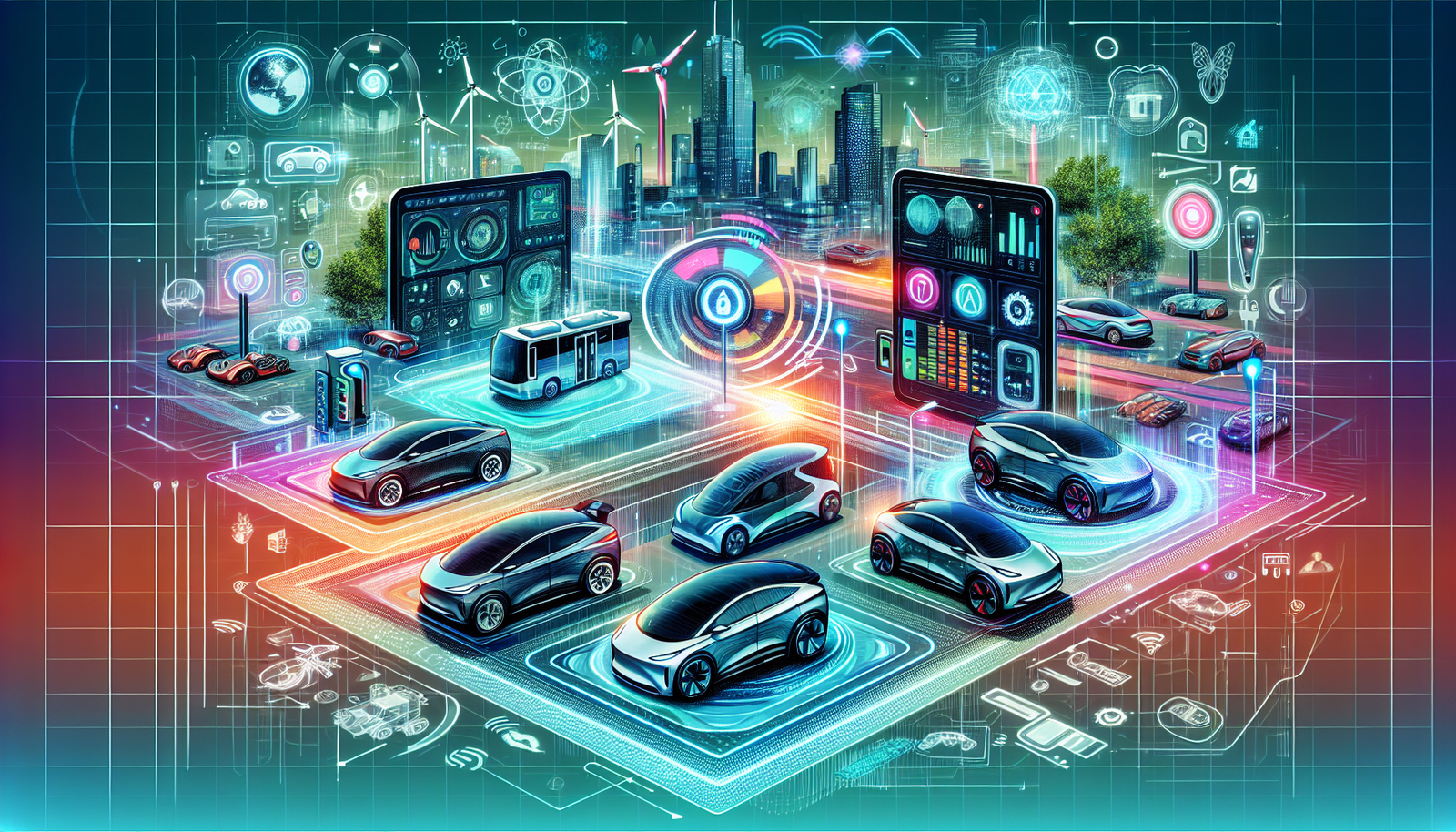In the rapidly evolving landscape of fleet management, a recent global study by Webfleet reveals that fleet managers are increasingly turning their attention to the transformative potential of artificial intelligence (AI) and electric vehicles (EVs). As the demand for efficiency and sustainability escalates, these technologies are set to play pivotal roles in shaping the future of logistics and transportation. This introduction sets the stage to explore how AI and EVs promise to revolutionize fleet operations, enhancing performance while reducing environmental impact.
The Rise of AI in Fleet Management
As we look toward the future, one cannot underestimate the seismic shift that AI is creating in fleet management. The data from the Webfleet study is resounding; approximately 73% of fleet managers anticipate that AI will significantly improve decision-making processes, streamline operations, and drive efficiency. With tools like predictive maintenance, AI can analyze vehicle performance and recommend timely interventions to prevent breakdowns. Imagine a world where your fleet vehicles send alerts before a problem even occurs—this is not science fiction; it is fast becoming a reality.
- Predictive Analytics: This AI capability is revolutionizing how fleets handle maintenance and operational efficiency.
- Route Optimization: AI can process vast data sets in real time to find the best possible routes, avoiding traffic jams and reducing fuel consumption.
- Driver Behavior Monitoring: With machine learning algorithms, AI can analyze driving patterns, thus enhancing safety and reducing insurance costs.
Through these applications, AI not only optimizes daily operations but also empowers fleet managers to make informed strategic decisions, shifting the emphasis from reactive to proactive management. Just think of how many headaches can be avoided with such technology! Fleet managers are enthusiastic about the potential of AI, and they are poised to take full advantage of the resulting operational efficiencies.
Electric Vehicles: The Sustainable Shift
As the conversation around sustainability becomes more urgent, the incorporation of electric vehicles emerges as a game-changer. Almost 68% of the fleet managers surveyed by Webfleet believe that EVs will drive significant changes within their operations over the next five years. The cost savings, environmental benefits, and improved company image make EVs an attractive proposition.
- Cost Efficiency: EVs generally have lower fuel and maintenance costs compared to traditional combustion engines.
- Sustainability: Fleets incorporating EVs contribute to reduced carbon footprints and comply with increasingly stringent environmental regulations.
- Government Incentives: Many regions offer subsidies and tax breaks for businesses that invest in electric vehicles, which can offset initial costs.
The future of fleet management is undeniably electric! As infrastructure for charging stations continues to expand, concerns regarding range anxiety diminish, paving the way for a full-scale transition to electric vehicles. Fleet managers are not just investing in new vehicles; they are investing in a greener and more sustainable future.
Integrating AI and EVs: A Perfect Partnership
Combining artificial intelligence with electric vehicles presents a double-whammy of innovation for fleet management. Picture a scenario where AI software not only manages your fleet’s operations but also optimizes the use of EVs based on driving patterns and energy consumption forecasts. This level of integration could lead to an unprecedented efficiency boost.
- Energy Management: AI can help schedule charging times for EVs when energy rates are lowest, significantly reducing operational costs.
- Fleet Monitoring: With AI tracking, fleet managers can obtain real-time insights on vehicle performance, energy usage, and maintenance needs.
- Dynamic Routing: AI can find the most efficient routes while considering charging station locations, ensuring that EVs are always ready to hit the road.
The synergy between AI and EVs fosters a more cohesive fleet management strategy, creating an adaptive system capable of responding to challenges as they arise. Fleet managers gain a unique competitive edge, leveraging technology to improve service delivery while keeping an eye on sustainability.
Challenges and Considerations
While the future sparkles with promise, transitioning to an AI- and EV-centric fleet is not without challenges. Some fleet managers may be hesitant, concerned about the initial costs and technological adaptations required. It is essential to address these issues head-on.
- Cost of Transition: Investing in AI systems and electric vehicles may require significant upfront expenditure. However, it’s crucial to look at the long-term savings associated with reduced fuel and maintenance costs.
- Employee Training: Staff will need training to navigate new technologies effectively—a step essential in maximizing the return on investment.
- Infrastructure Readiness: Fleet managers must assess whether their local infrastructure can support the charging needs of EVs. Regions lagging in charging station availability will create logistical hurdles.
By acknowledging these challenges and planning strategically, fleet managers can smooth the transition and pave the way for a future that promises increased efficiency and sustainability—an outcome that should excite both managers and their stakeholders.
Global Trends in Fleet Management
The global study conducted by Webfleet reflects larger trends in various markets that are embracing AI and EVs as standard components of fleet management. The survey pulled in insights from fleet managers in diversified sectors, underscoring that this isn’t a fleeting trend but a foundational shift in how the industry operates.
Industries such as logistics, healthcare, and even local governments are already taking proactive steps toward integrating these technologies. It’s not just about efficiency anymore—it’s about staying competitive in an ever-evolving landscape.
Neyrotex.com offers valuable resources and tools for fleet managers looking to make the transition. With the right guidance, managers can navigate challenges while optimizing their fleet’s potential.
Looking Ahead: The Future is Here
In sum, the findings from Webfleet highlight the bringing together of AI and EV technologies that are shaping a thrilling future in fleet management. Fleet managers will find that with the right tools, they can improve operational efficiency, enhance sustainability practices, and motivate teams toward achieving company goals.
As the evolution continues, staying informed about developments in AI and EV technologies is crucial for those in the fleet management arena. As trends shift, fleet managers who adapt will not just survive—they will thrive in the new-age logistics landscape.
For further exploration of how AI and electric vehicles are becoming cornerstones of fleet management, you can delve into resources from the American Transportation Research Institute and the International Federation of Automotive Engineering Societies. These organizations provide additional insights that will illuminate the road ahead.
As we turn the page toward this exciting future, fleet managers must take action now. The integration of AI and electric vehicles is not merely an opportunity—it’s a necessity for those hoping to make an impact, create efficiencies, and reduce environmental footprints. Let’s pave the way toward a more sustainable logistic future together, one fleet at a time.
Neyrotex.com is available to support fleet managers in harnessing these technologies effectively. Embrace the future; it’s right at your fingertips!







